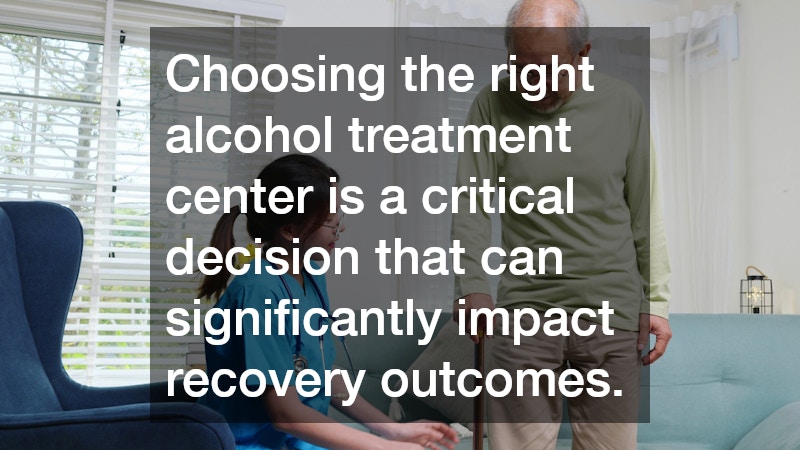In this article, we explore what individuals can expect when they seek help from alcohol treatment centers. From understanding the variety of programs available to addressing common misconceptions, we’ll provide a comprehensive overview of the journey to recovery.
What Types of Programs are Available at Alcohol Treatment Centers?
Inpatient vs. Outpatient Programs
Inpatient and outpatient programs represent two primary pathways in alcohol treatment centers, each tailored to suit different recovery needs. Inpatient programs provide intensive, structured care in a residential setting, requiring individuals to stay at the facility for the duration of their treatment.
On the other hand, outpatient programs allow individuals to live at home while attending scheduled treatments. This option is particularly beneficial for those who have familial or work commitments and aim for a flexible yet effective recovery approach.
Both types of programs aim to provide comprehensive support, but inpatient treatment is often recommended for severe cases of alcohol addiction. In contrast, outpatient programs can be suitable for those with a strong support system at home and a less severe addiction.
Specialized Treatment Options
Specialized treatment options in alcohol treatment centers are designed to address specific demographic needs and maximize recovery outcomes. Gender-specific programs, for instance, focus on issues uniquely affecting men or women, providing a safe environment for addressing these challenges.
Similarly, there are programs tailored for different age groups, such as adolescents or seniors, ensuring that treatment methods are age-appropriate and effective. These specialized approaches recognize that recovery isn’t one-size-fits-all and aim to meet the unique needs of each individual.
Furthermore, some centers offer culturally sensitive programs, which incorporate cultural perspectives into treatment, fostering greater acceptance and relatability. Specialized treatment options play a vital role in enhancing the recovery process by aligning with individual preferences and circumstances.
How Effective are Alcohol Treatment Centers?
Measuring Success Rates
The effectiveness of alcohol treatment centers is often measured through success rates, which indicate the proportion of individuals who maintain sobriety after treatment. However, success rates can vary widely depending on several factors, including the duration of the program and the level of aftercare support provided.
Research shows that longer treatment programs tend to have higher success rates due to the extended period of support and therapy available to the individual. Aftercare programs, which continue to support individuals post-treatment, also significantly contribute to sustained recovery and prevent relapse.
Challenges to Successful Recovery
Despite the structured support provided, alcohol treatment centers face several challenges in ensuring successful recovery for everyone. One common hurdle is co-occurring mental health disorders, which often accompany addiction and require concurrent treatment.
Moreover, the transition from a controlled environment back to daily life can be difficult, posing a risk for relapse if not managed carefully. To combat this, centers typically incorporate relapse prevention strategies and coping mechanisms into their treatment plans.
What Should One Expect During Treatment?
Typical Daily Routines
Daily life in an alcohol treatment center is structured around activities designed to support recovery and equip individuals with essential life skills. Mornings often begin with group therapy sessions, providing a collaborative platform for sharing experiences and developing peer support.
Afternoons may include a combination of individual counseling, educational workshops, and holistic activities such as yoga or meditation. This balanced mix of therapeutic and recreational activities aims to address the physical, emotional, and psychological aspects of addiction.
The Role of Therapy and Counseling
Therapy and counseling are central components of the alcohol treatment process, playing a significant role in uncovering the underlying issues driving addiction. Different therapeutic approaches, including cognitive-behavioral therapy and motivational interviewing, are utilized to challenge negative thought patterns and reinforce positive behaviors.
Counseling sessions also provide a safe space for individuals to express themselves and explore personal challenges impacting their recovery. Emotional support and professional guidance are indispensable in building resilience and developing effective coping mechanisms.
How to Choose the Right Treatment Center?
Evaluating Program Credentials
Choosing the right alcohol treatment center is a critical decision that can significantly impact recovery outcomes. Evaluating program credentials, including accreditation and staff qualifications, is a vital factor in this decision.
Accreditation from reputable organizations ensures the facility meets established quality standards and follows best practices in treatment. Additionally, the expertise and experience of the staff play a crucial role in the effectiveness of the program, making it essential to inquire about their credentials and training.
The Importance of Personal Fit
While program credentials are essential, the personal fit of a treatment center cannot be overlooked when making a choice. A facility that aligns with an individual’s values, lifestyle, and personal needs can greatly enhance the recovery process.
Factors such as location, amenities, and the treatment philosophy should be considered, as they can influence one’s comfort and engagement with the program. For instance, a serene environment with opportunities for family involvement may be more suitable for some individuals.
In conclusion, understanding the expectations and realities of alcohol treatment centers is crucial for anyone embarking on a journey to recovery. By addressing common questions and providing clarity on treatment options, individuals can make informed decisions and embark on their path to sobriety with confidence.
